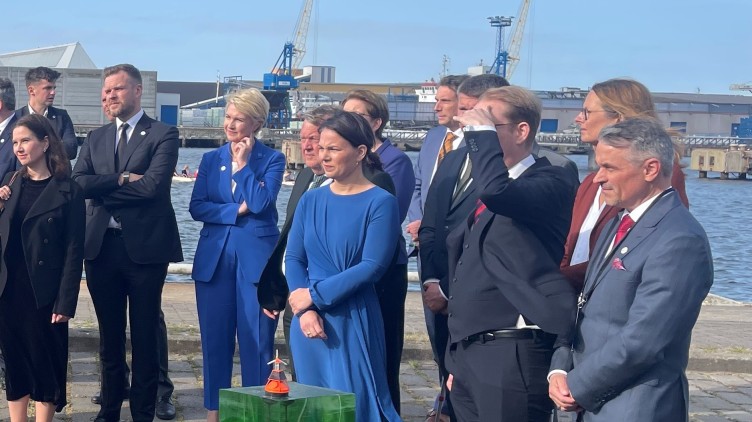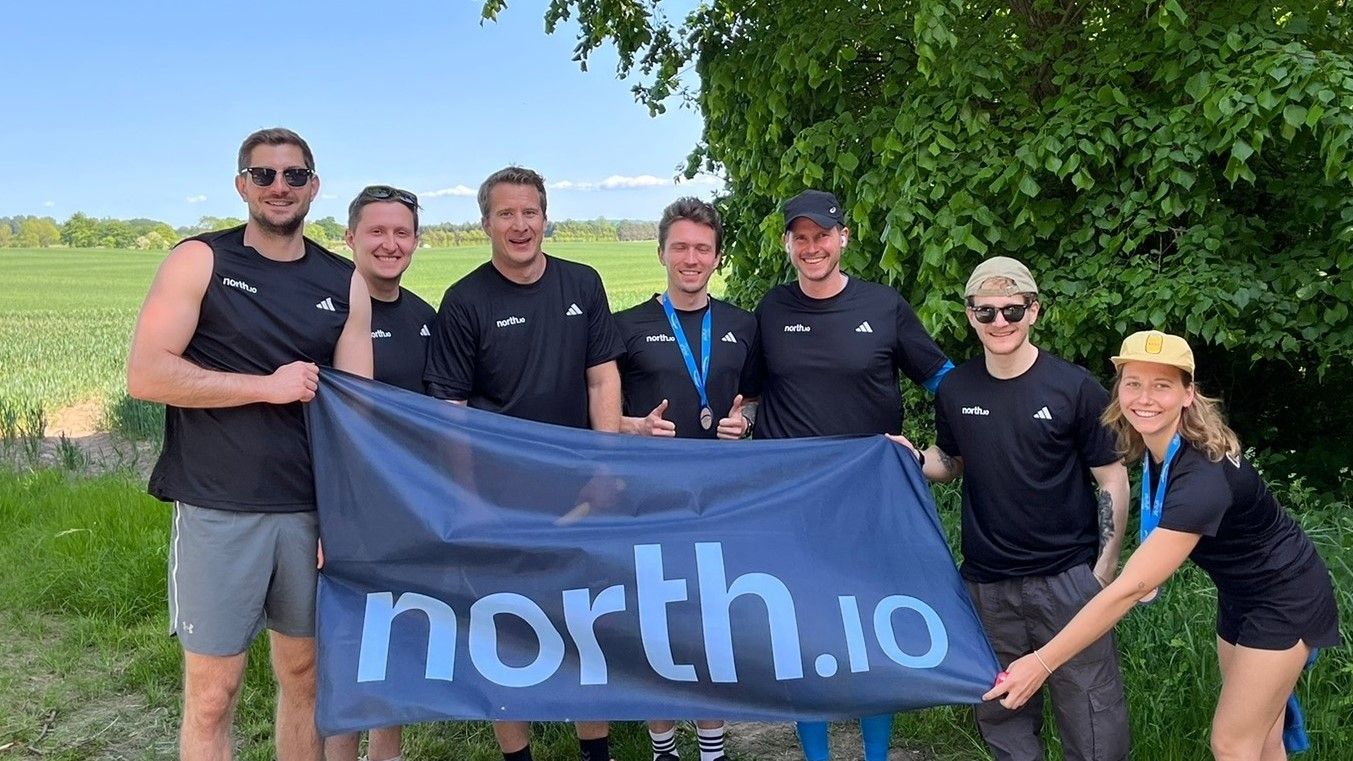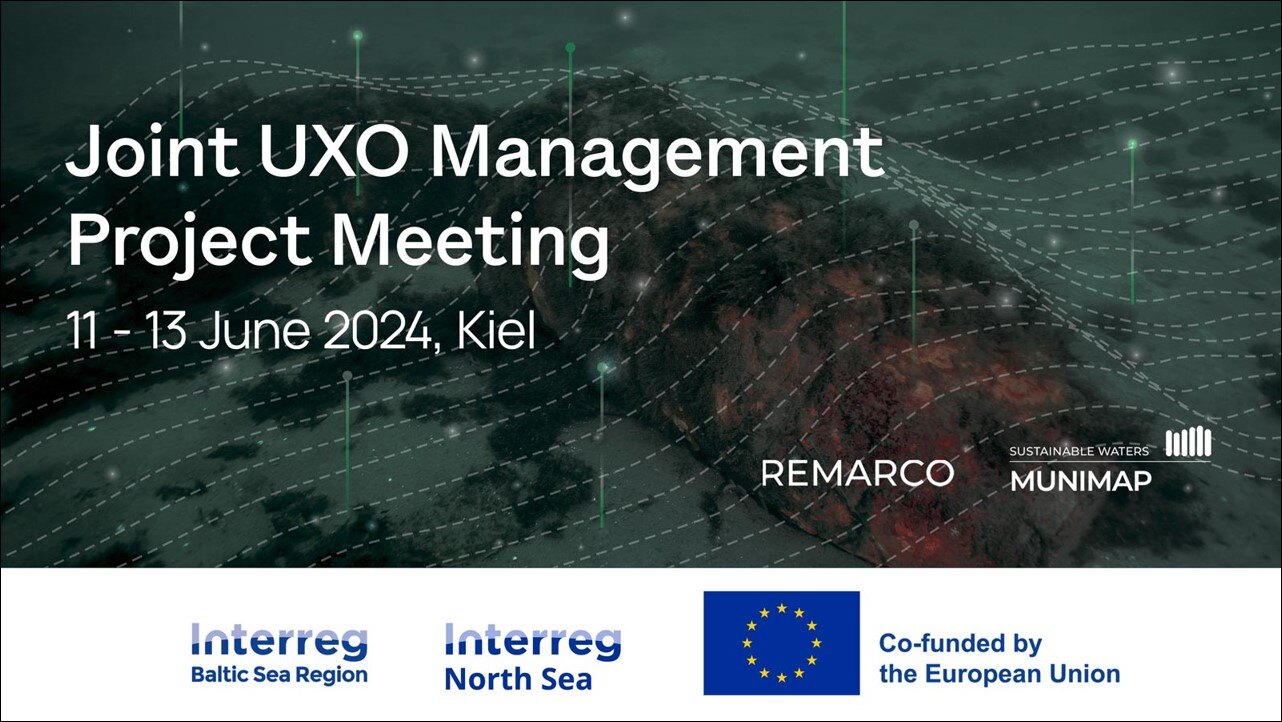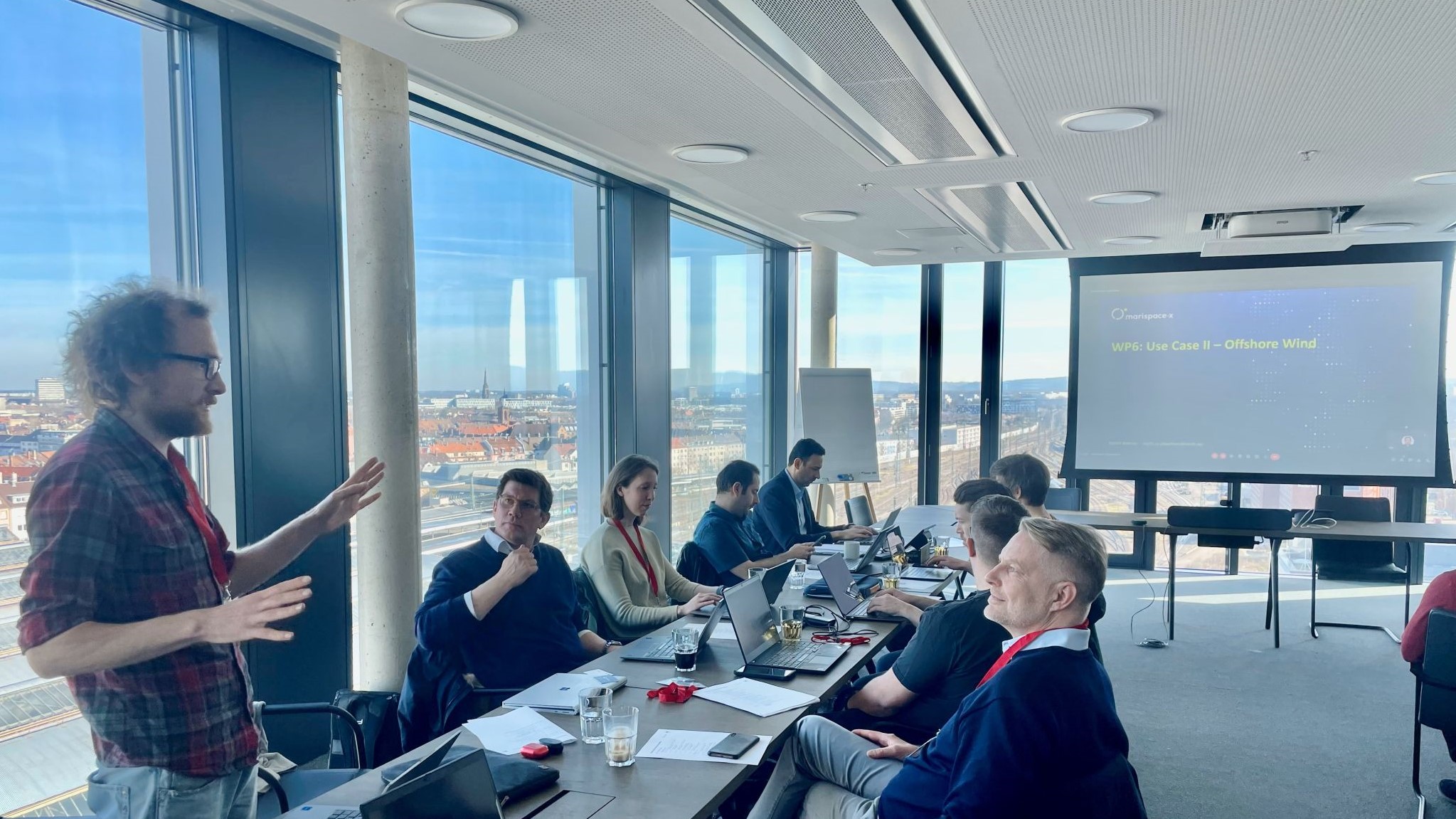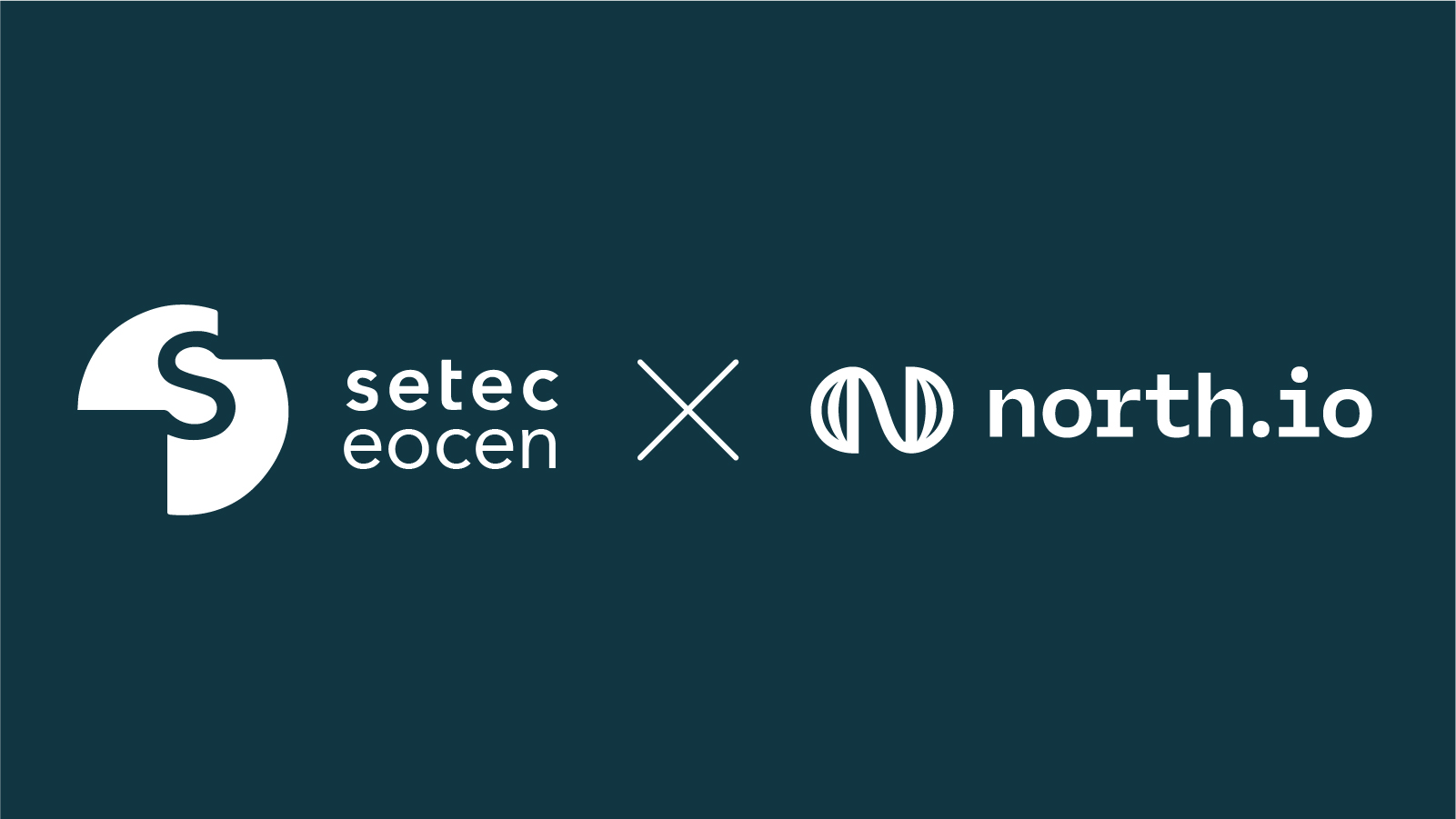Wismar, 02.06.2023. During the currently ongoing Council of the Baltic Sea States, Jann Wendt from north.io GmbH was able to present concrete proposals for solving the problem of contaminated sites in the Baltic Sea to the foreign ministers of the Baltic Sea countries yesterday: According to Wendt, the combination of underwater sensor technology and highly developed software systems as well as artificial intelligence (AI) will soon make it possible to generate a comprehensive picture of the situation on the seabed.
„With the help of digital tools, we create the knowledge so that authorities can always get an up-to-date picture of the hazard situation under water in the course of a long disposal process and make better-informed decisions from it.“,
said Wendt.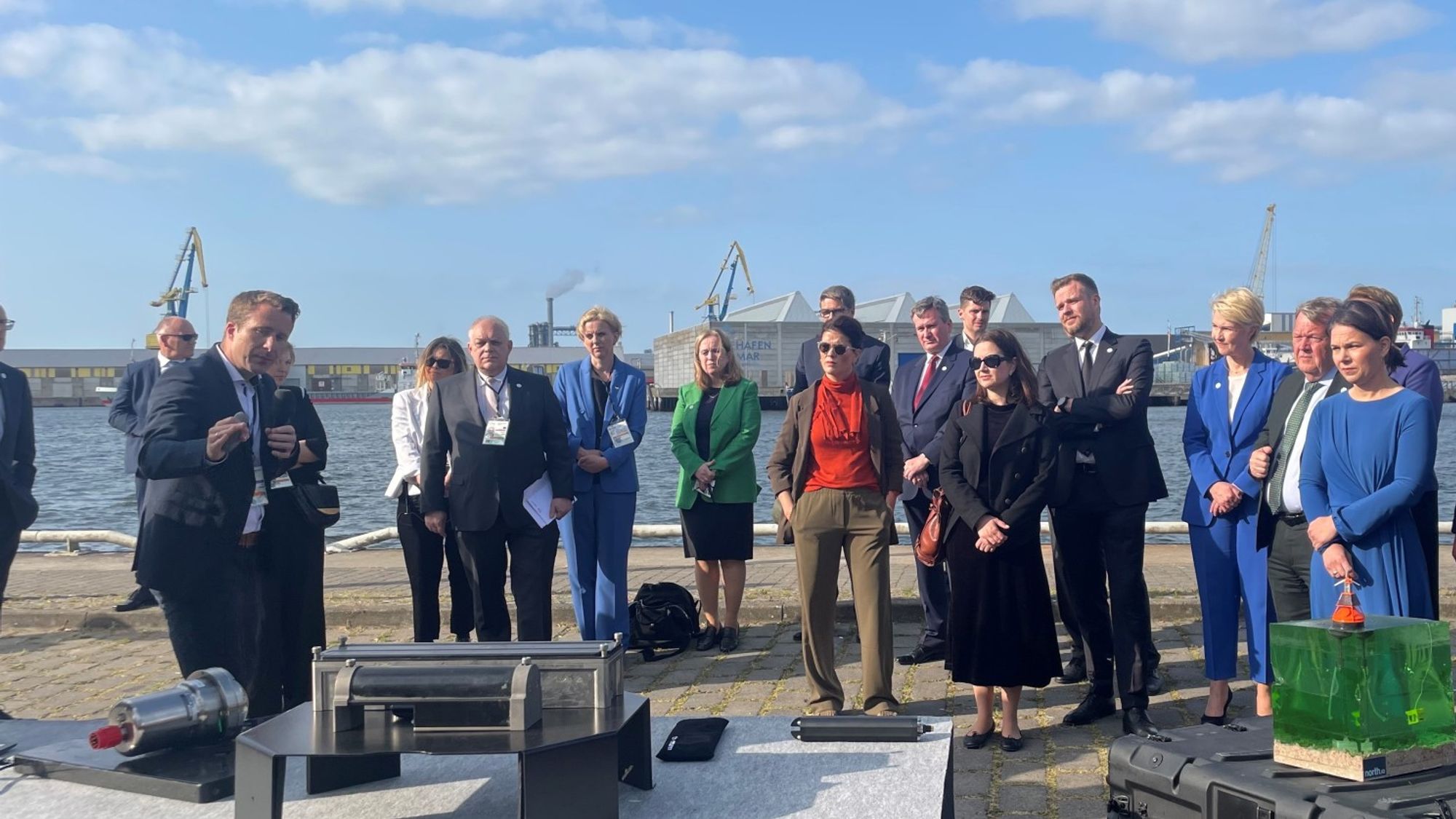 Background: According to Foreign Minister Annalena Baerbock, the seabed of the Baltic Sea is contaminated with up to 450,000 tons of conventional explosives and about 40,000 tons of chemical weapons. This is roughly equivalent to the load of 11,000 semitrailer trucks and poses a deadly threat to humans, our environment and marine fauna.
Background: According to Foreign Minister Annalena Baerbock, the seabed of the Baltic Sea is contaminated with up to 450,000 tons of conventional explosives and about 40,000 tons of chemical weapons. This is roughly equivalent to the load of 11,000 semitrailer trucks and poses a deadly threat to humans, our environment and marine fauna.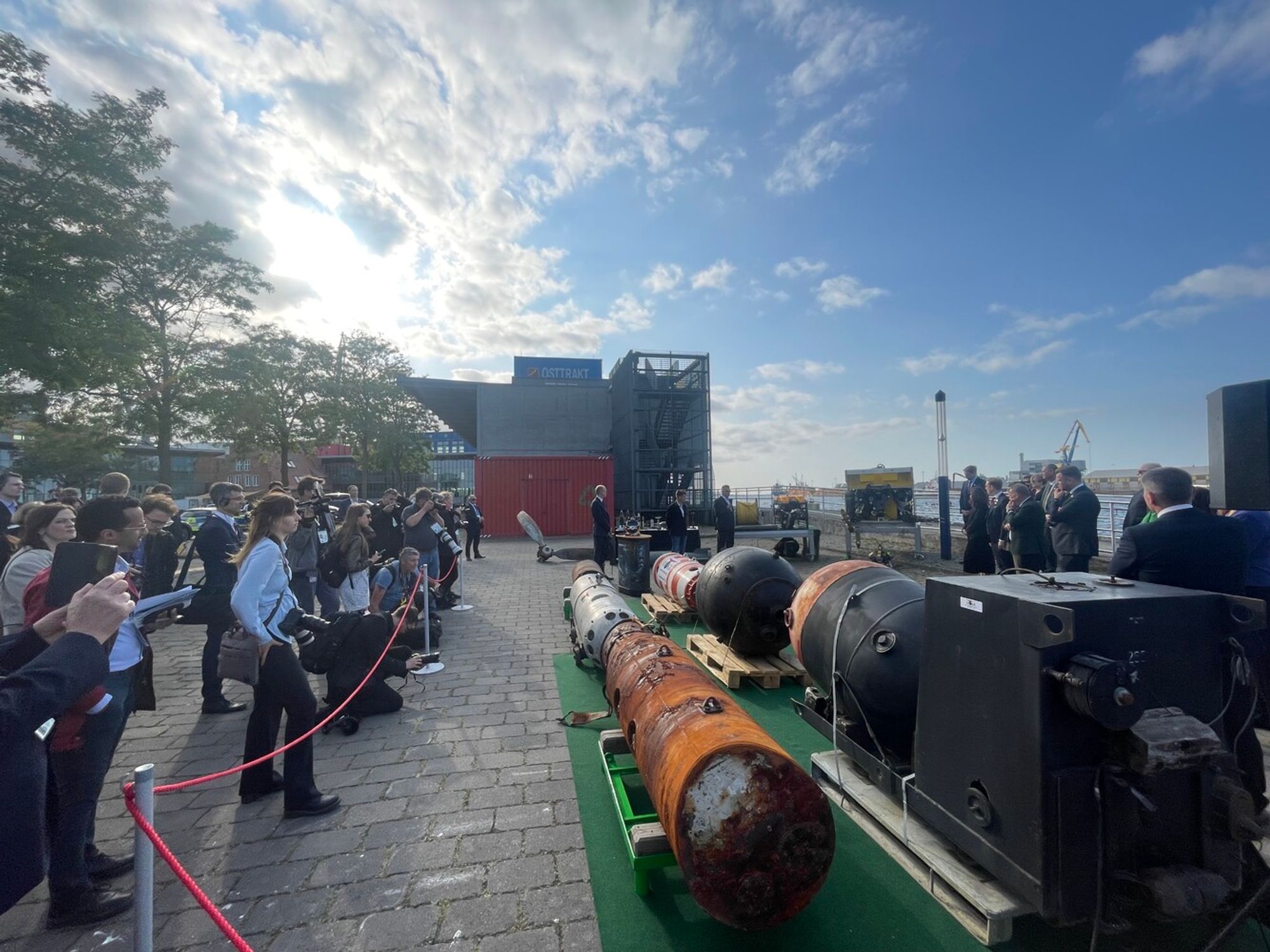 For this reason, Baerbock has made cooperation and exchange in the recovery of ammunition and explosive ordnance from the bottom of the Baltic Sea a priority topic of Germany's one-year chairmanship of the Council of the Baltic Sea States. She made specific demands in Wismar:
For this reason, Baerbock has made cooperation and exchange in the recovery of ammunition and explosive ordnance from the bottom of the Baltic Sea a priority topic of Germany's one-year chairmanship of the Council of the Baltic Sea States. She made specific demands in Wismar:
„Defuse this ticking time bomb on the seabed.“
In addition to north.io, other experts from research, science and industry who can make a contribution to solving the challenge should also be able to help:
“We brought together experts from a variety of fields on this, who will brief us today on how the challenges can be tackled to make the Baltic Sea cleaner and again safer.”
In addition to north.io GmbH, experts from Fraunhofer IGD SENSYS - Magnetometers & Survey Solutions , from the Toxicology Department of Kiel University, from the Mecklenburg-Vorpommern Explosive Ordnance Disposal Service, from GEKA MbH, from BALTIC Taucherei- und Bergungsbetrieb Rostock GmbH and from the Gesellschaft für Kampfmittelbeseitigung mbH M/V were also invited.
"No one solves the problem alone",
Wendt said as an outlook. Cooperation, collection, exchange and analysis of large amounts of maritime data play a crucial role in "monitoring" the Baltic Sea - not only with regard to munitions disposal, he said.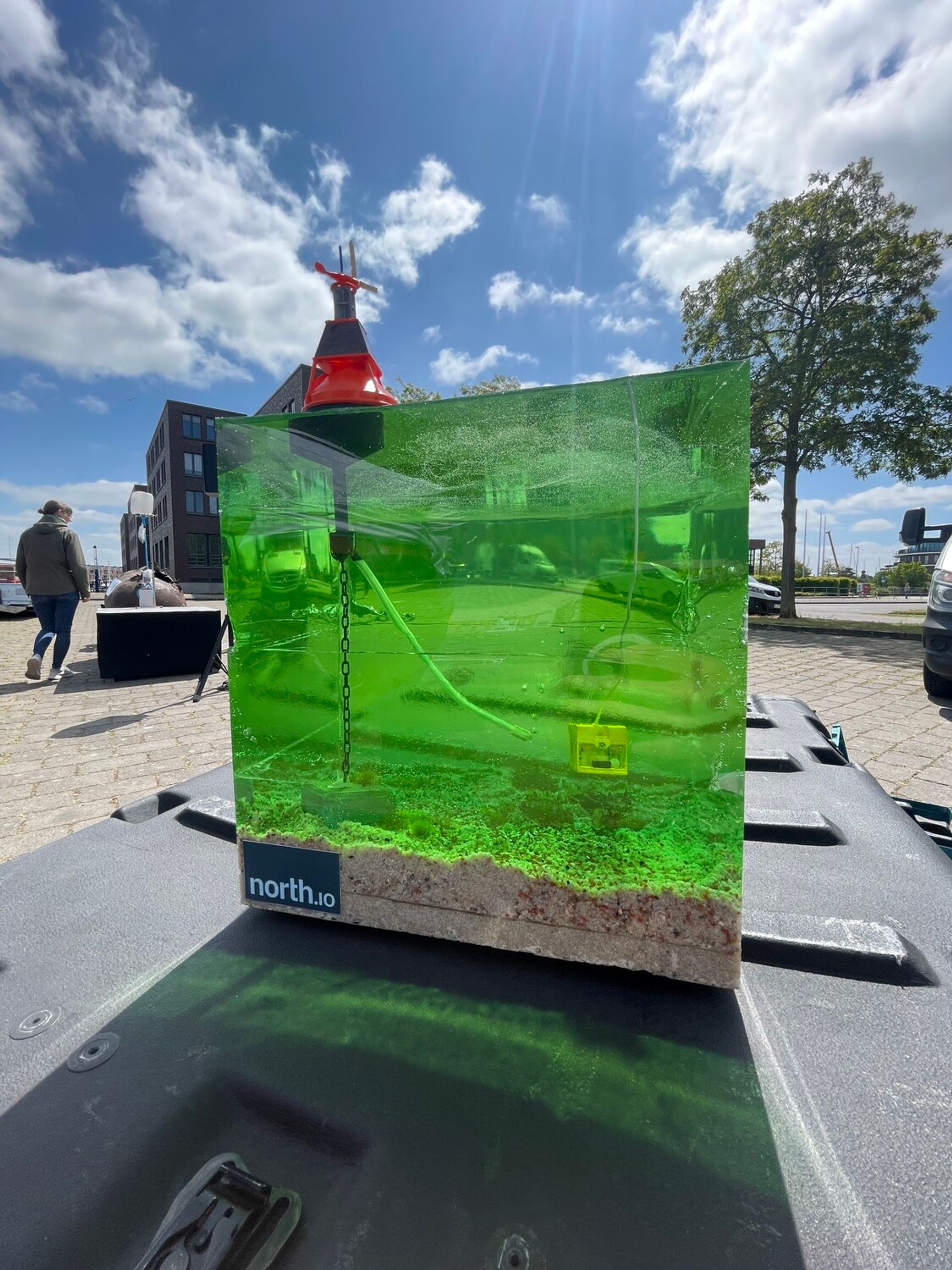 Wendt therefore also proposes to leverage the Marispace-X maritime digitization project, funded by the Federal Ministry for Economics and Climate Action, by providing a secure and reliable data ecosystem for data management, analysis and sharing.
Wendt therefore also proposes to leverage the Marispace-X maritime digitization project, funded by the Federal Ministry for Economics and Climate Action, by providing a secure and reliable data ecosystem for data management, analysis and sharing.
